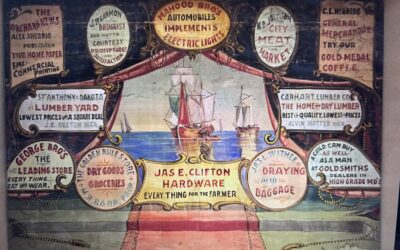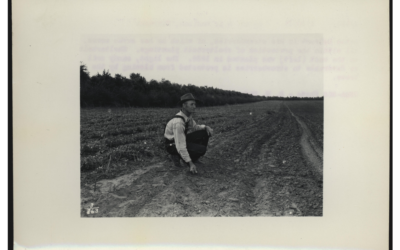Elia W. Peattie moved to Omaha from Chicago in 1886 with her husband to work for the Omaha World-Herald. Robert became the managing editor, and his wife was an editorial writer. Unafraid of controversy, she tackled subjects such as women’s roles in society and the need for orphanages, shelters for unwed mothers, and charity hospitals. On December 2, 1892, she spoke at the University of Nebraska in Lincoln to members of the school’s literary societies on “A Woman Reporter’s Work.”
The December 3, 1892, Nebraska State Journal remarked, “The [university] chapel was about three-fourths full. The majority of the audience were students, but many of the townspeople were also there, anxious to hear what the gifted newspaper woman had to say about the right of her sex to enter newspaperdom.” The crowd was not disappointed. Peattie, after introductory remarks, “opened up her subject proper by saying that the entry of woman into newspaper work had come about naturally by the extension of industrial freedom to the sex. Where fifty years ago, a woman had to choose whether to be a wife, a domestic, a teacher or a hanger-on, now there were 359 avenues of work open to her. This has been brought about, said the lecturer, by the good sense of the men. They have simply recognized that a woman has a right to her individuality. . . .
“Women, it is true, are as a rule poorer paid than men for the same work. This is due partly to the inexperience of woman in the struggle of life, to her yielding nature and partly to the fact that she has not the ballot. It is also, sad to say, partly due to the knowledge that if a woman can not earn enough by her labor, she can sell her soul to eke out the rest. But in newspaper work, women are paid the same as men for the same work, and they have the same chance to rise if they prove themselves worthy.
“The speaker said it was but seven years since she began newspaper work, and that then a woman reporter was regarded as a curiosity. Now [in 1892] the metropolitan dailies frequently have four or five newspaper women on the staff. The World-Herald always has two or three.”
Mrs. Peattie also discussed the difficulty of balancing the demands of work and home for women, saying that “marriage did not cut short the career of the newspaper woman for many parts of the work could be combined with household duties.” If necessary, she thought servants should be hired to enable “the woman with an expansive mind” to devote herself to newspaper work.



